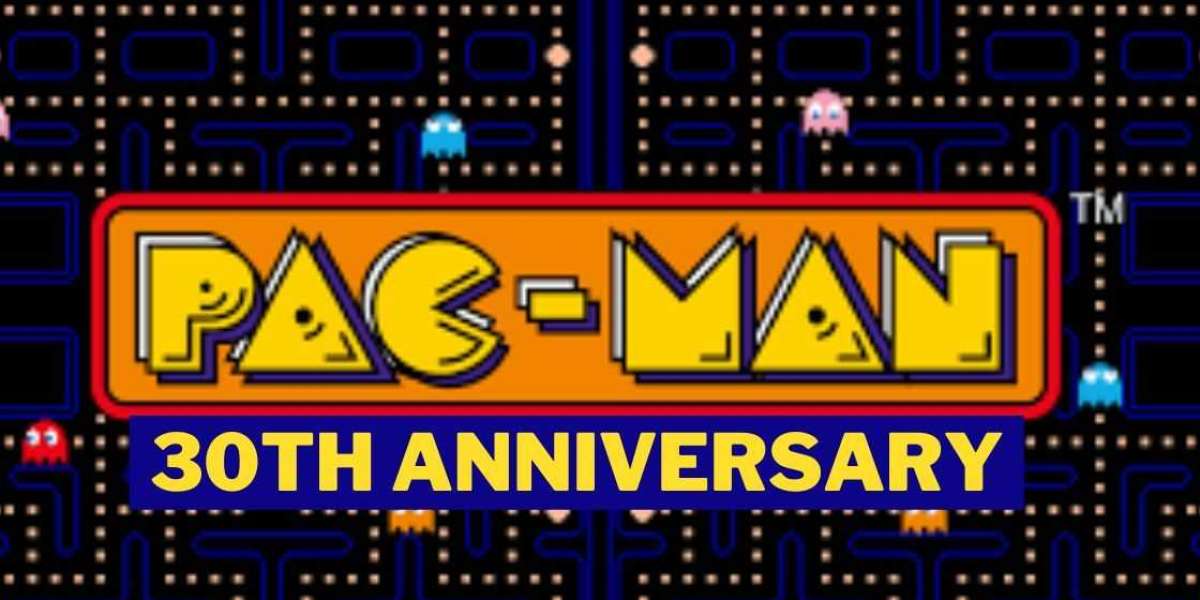Okay, hear me out. You might be thinking, "Pacman? What does that have to do with managing a store?" Well, while it doesn’t involve shelves, employees, or price tags, the core principles of Pacman 30th Anniversary apply surprisingly well to understanding the challenges and st
Today, we’re going to explore how playing the ever-classic
pacman 30th anniversary can actually provide a surprising (and fun!) crash course in the skills needed to excel in more traditional store management games. We'll delve into the gameplay, highlight key strategies, and then translate those lessons into valuable takeaways you can apply to your next management simulation.Gameplay: A Delicious Labyrinth of StrategyIf you’ve somehow lived under a rock for the past few decades, here’s the basic rundown. In Pacman 30th Anniversary you control Pacman, a perpetually hungry yellow blob tasked with clearing a maze of dots (Pac-Dots). You navigate the maze using the arrow keys, gobbling up dots for points while avoiding four colorful ghosts: Blinky, Pinky, Inky, and Clyde.But here’s where the strategy comes in. Scattered throughout the maze are four Power Pellets. Eat one of these, and the ghosts turn blue, becoming vulnerable for a short period. This is your chance to turn the tables and score massive points by chowing down on the spectral pursuers.However, the power-up is temporary, and the ghosts will eventually revert to their lethal forms. Knowing when to engage, when to evade, and how to optimize your power-up window is crucial for achieving a high score.The levels increase in difficulty, introducing faster ghost speeds, shorter power-up durations, and more complex maze layouts. Ultimately, success in Pacman hinges on careful planning, quick reflexes, and a solid understanding of the game's mechanics.Tips for Taming the Maze: From Dots to DollarsSo, how can mastering Pacman 30th Anniversary help you become a better store manager (in the virtual world, at least)? Here are a few key lessons and tips:Resource Management (Pac-Dots & Power Pellets): In Pacman, your resources are your Pac-Dots and Power Pellets. Just like inventory and capital in a store management game, these resources are finite and must be managed strategically. Are you maximizing your Pac-Dot collection efficiently? Are you saving Power Pellets for critical moments, or are you burning through them recklessly? This translates directly to managing your store's inventory effectively. Don't overstock on slow-moving items, and always ensure you have enough of your bestsellers.Risk Assessment (Ghost Encounters): Every move in Pacman involves risk. Do you risk venturing into a dangerous area of the maze for a higher density of dots? Do you attempt to grab a Power Pellet even though a ghost is hot on your heels? These decisions mirror the risks involved in running a store. Expanding into a new market? Launching a new product? These decisions require careful assessment of potential rewards and potential pitfalls.Pathing and Efficiency (Maze Navigation): The most efficient Pacman players plan their routes in advance, minimizing wasted movements and maximizing dot collection. This translates to optimizing your store layout and employee workflows. Is your store designed in a way that encourages customers to browse? Are your employees positioned to provide efficient service?Timing and Power-Ups (Special Promotions): Power Pellets are your “special events” in Pacman. They provide a temporary advantage, allowing you to score big. Similarly, in store management games, special promotions, sales, and events can drive a surge in revenue. However, just like a Power Pellet’s limited duration, these promotions are temporary and need to be strategically timed and managed.Adaptability (Ghost AI): While not as sophisticated as AI in modern management games, the ghosts in Pacman aren’t completely predictable. They change their patterns and adapt to your movements. Similarly, in store management, you need to be adaptable to changing market conditions, competitor actions, and customer preferences.By consciously thinking about these parallels while playing Pacman 30th Anniversary, you’ll be surprised how the seemingly simple game can sharpen your strategic thinking and resource management skills.Conclusion: From Pacman to Profit – It's All About StrategySo, the next time you’re looking for a fun and engaging way to unwind (and maybe sneak in a little mental exercise), give Pacman 30th Anniversary another spin. While it might not directly teach you how to price your products or manage your staff, it will undoubtedly improve your strategic thinking, resource management, and risk assessment – skills that are essential for success in any store management game, and, arguably, in life! Just remember to keep an eye out for those pesky ghosts – or, in the business world, the competition. Happy gaming!
 Meet Ups
Meet Ups
 Experiences
Experiences
 Learning Center
Learning Center
 Accommodation
Accommodation
 Roomie
Roomie
 Ride
Ride
 Spread the Word
Spread the Word
 Student Bazaar
Student Bazaar
 Jobs
Jobs
 Blogs
Blogs
 Pin StudentInsta
Pin StudentInsta

